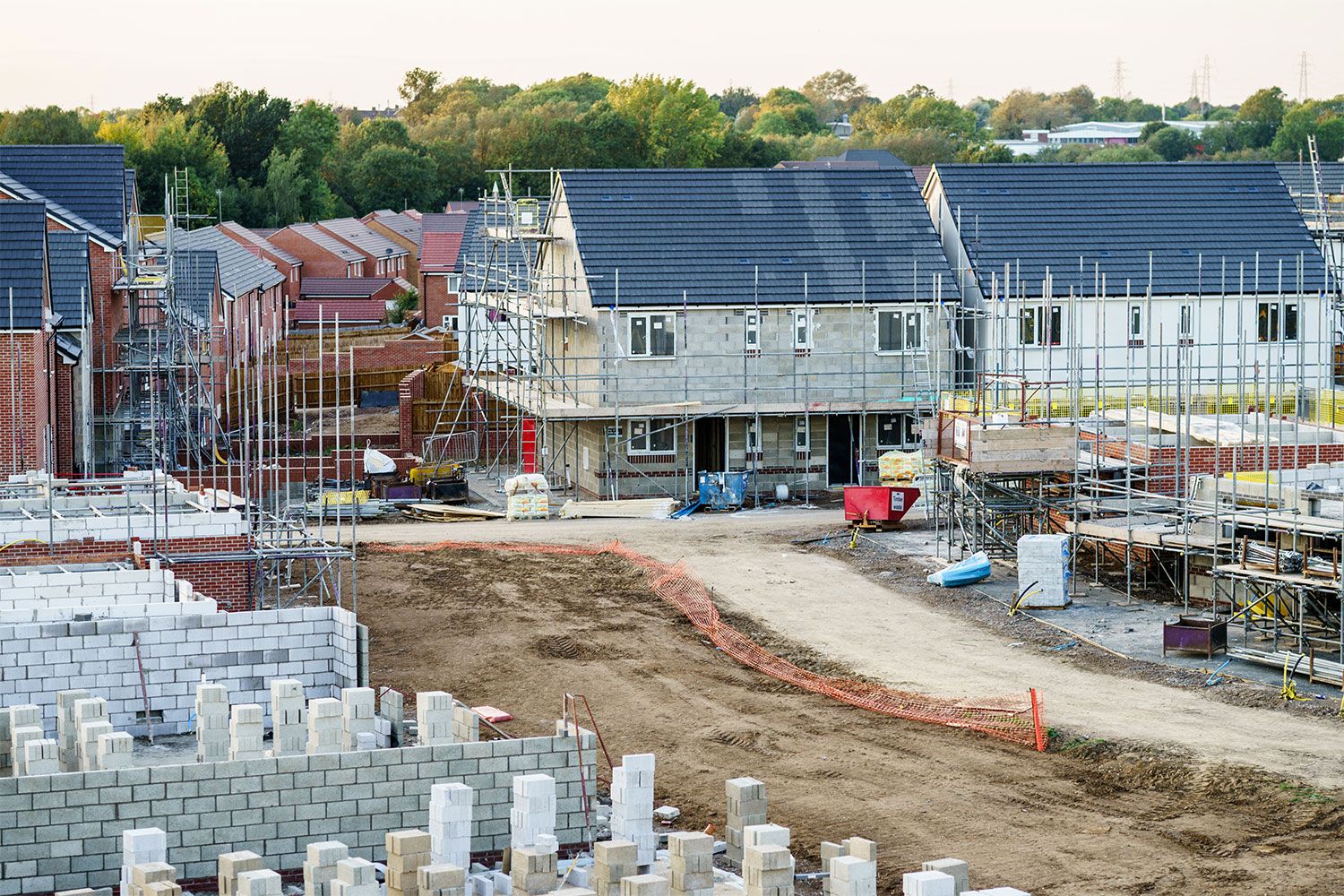Home Owners To Take Action Against Roads and Sewerage Adoption Issues
According to statistics released by the Department for Infrastructure (DfI) there are over 1,800 housing developments throughout Northern Ireland where roads and/or sewers remain unadopted, meaning the roads and sewers are not maintained by statutory bodies. Therefore, many residents cannot sell their property due to the condition of some roads and sewers in the affected housing developments. An Inquiry into these issues in 2012 found that there were between 1,200 and 3,500 unadopted roads in Northern Ireland, meaning that there has been little to no improvements since that date.
Where roads and sewers to a development have been completed for a considerable period of time and have not been adopted by DfI (as is the case across many developments in Northern Ireland), prospective purchasers are very likely to be advised by their Solicitor to withdraw their offer to purchase and refrain from signing a Contract for Sale.
This is undoubtedly a disastrous situation for homeowners in affected housing developments as they are unable to sell their property or retrieve the capital they invested into the property in the first place.
When Should Roads and Sewers be Adopted? – The Law in Northern Ireland
Developers should request that the Department for Infrastructure (DfI) adopt the Roads and Sewers in their development once the last house of the development is completed.
Adopted Roads
The DfI will adopt new roads and footpaths which have been:
1. Determined for adoption and
2. Works have been completed to the approved standard by DfI.
Article 24 of The Private Streets (Northern Ireland) Order 1980 requires developers to make prior provision for expenses relating to street works. This means that developers must have a bond or cash deposit in place to protect the interests of purchasers as this secured source of funds allow the DfI to complete the roads in a development to an adoptable standard if the developer becomes insolvent or simply fails to do so.
Please note that it is illegal for a developer to commence development works without having a Private Streets Agreement and Bond in place.
Adopted Sewers
The adoption of sewerage systems in new developments in Northern Ireland follows a similar but separate procedure to that of the adoption of roads and footpaths.
Pursuant to the Water and Sewerage Services (Northern Ireland) Order 2006, NI Water can agree to adopt sewers, drains and other related works in new housing developments where the following is present:
1. There is an Article 161 Agreement between the developer and NI Water for adoption and
2. The Developer has complied with the terms and conditions specified by NI Water in constructing the sewers and laying pipes.
3. Works have been completed to the approved standard by NI Water.
As with the adoption of the roads, it is a legal requirement that developers make prior provision for expenses relating to water and sewerage systems by way of a bond or cash deposit before commencing works to protect the interests of purchasers. These secured sources of funds enable NI Water to complete the water and sewerage systems in the development to an adoptable standard if the developer becomes insolvent or simply fails to do so.
Why might Roads and Sewers in Historical Developments not be adopted?
Issues with the adoption of roads and sewers exist in many historical developments which were built in the early 2000s onwards. These issues have arisen because the developer has not completed works in line with the requisite terms and conditions of their agreements; the works have not been completed to an appropriate standard and; in light of inflation, the value of the bond no longer covers the expense of the street works or sewerage works to be carried out by NI Water and/or DfI to get the development to the appropriate standard for adoption.
In many cases the developer has went bankrupt or become insolvent and it does not have the means to complete the work. In other cases, DfI may not have adopted roads and sewers in breach of their legal obligations.
What Legal Remedies Are Available to Home Owners?
There are various legal remedies which may be available to you, including:
Judicial Review – this process allows you to challenge decisions of DfI and NI Water in refusing to adopt the roads and sewers.
Civil Litigation Claims – this process will allow you to claim against a developer or their insurer for negligence and the damage and loss you have sustained because the roads and sewers have not been adopted.
Many of these houses will have the benefit of a policy of insurance often form the NHBC Scheme. The homeowner may be able to sue against this policy for their losses.
Exhaust appeals process where adoption has been refused which includes an appeal to the Utilities Regulator in respect of a refusal to adopt sewers.
Issue a complaint to the Ombudsman.
Please note that the remedies available to you will depend on the individual facts of your case. Our expert Litigation team would be more than happy to discuss a potential claim and the remedies which you may avail of.
Is there anything else that I should know? (New law)
Pursuant to the Defective Premises Act (NI) 2024, if the property was purchased before 2024, homeowners have 30 years from the date the property was purchased to bring a civil claim. For claims where the property was purchased in 2024, or later, the claim must be brought within 15 years from that date.
This is a significant change in the law and will assist homeowners in bringing litigation, particularly those who bought property in historic housing developments.
How P.A. Duffy & Co. Can Help
At P.A. Duffy & Co. Solicitors, we understand with the hardships, financial and physical, that homeowners in developments with unadopted roads and sewers are faced with.
If you live in a development or street which has unadopted roads or sewers and would like to make a claim or find out more information by contacting our expert litigation team.
We are instructed by a number of clients across a range of developments in Northern Ireland. We intend to hold a number of events to discuss the issues with those affected homeowners in 2025.

